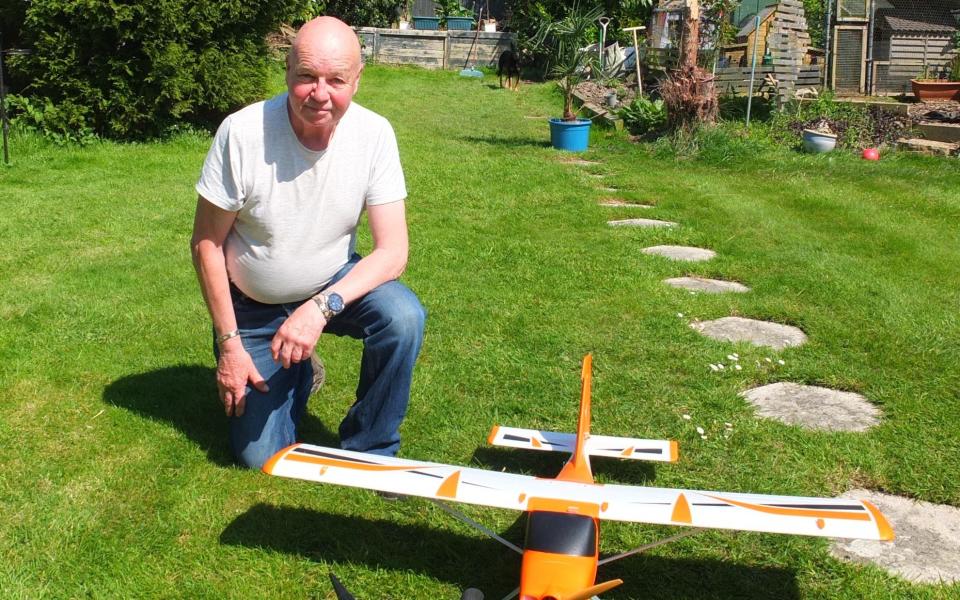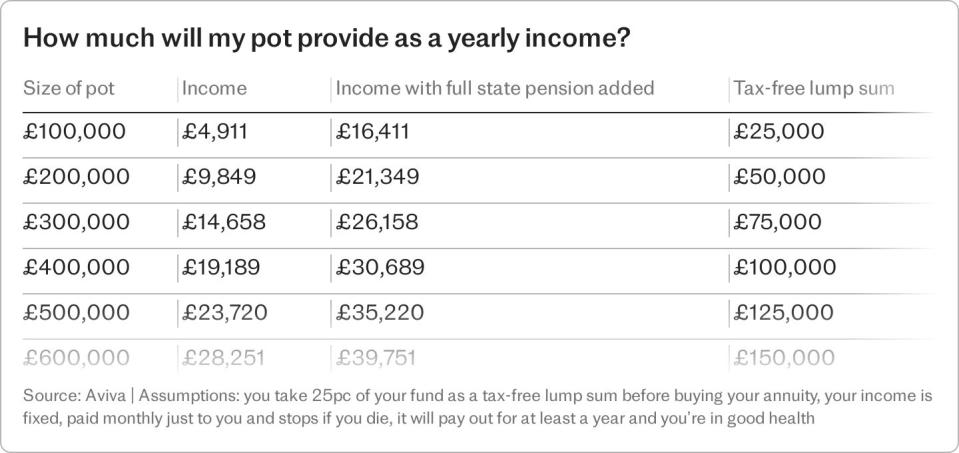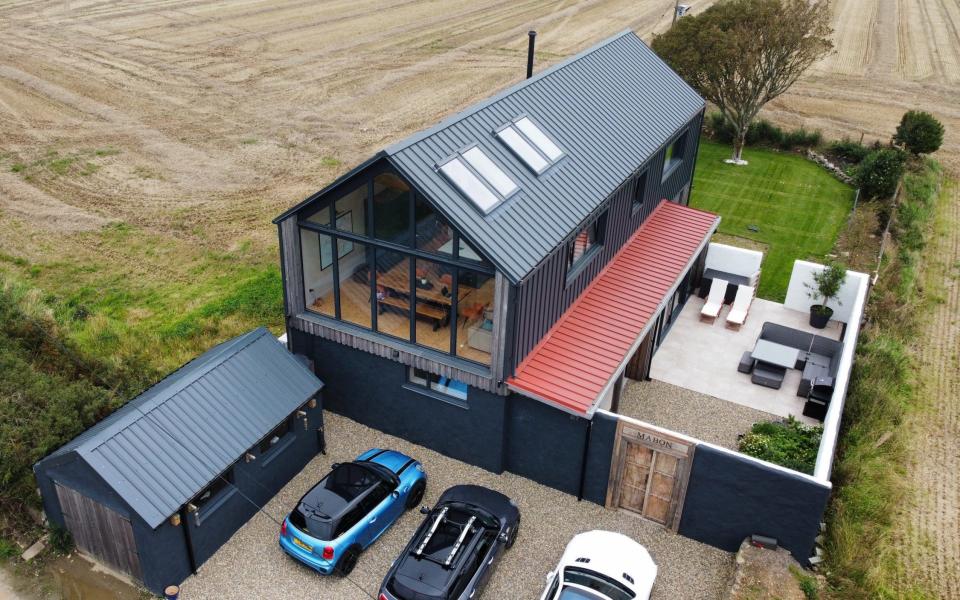For most savers, the prospect of a guaranteed income until death would be difficult to turn down.
Defined benefit pension schemes (DB) offer a salary indexed to inflation upon retirement. They are highly sought after, expensive for employers to finance and increasingly rare. Only 7% of private sector workers are members of these gold-plated schemes, compared to over 80% in the public sector.
But for some intrepid DIY investors, abandoning these lucrative benefits has been a gamble that has paid off. You can exchange a guaranteed pension managed by trustees for a “defined contribution” plan, where you assume all the risk of generating income, but have much more control and better tax benefits in the event of your death.
The so-called “transfer values” – the amount you receive in your private pension for giving up the promise of an annual income – are linked to the yield on government bonds. Before interest rates soared, some people were offered 30 or 40 times the value of their pension to give up.
‘Finally, wage pensions are seen as wonderful – but they’re not’


At 61, Dave Pickett was beginning to think about retirement. His gold-plated pension appealed after a long career working in IT for HSBC.
The defined benefit scheme, based on his final salary, entitled him to a lump sum of £75,000 and £11,266 per year for life, subject to a reduction of £1,237 once he has reached state retirement age.
But he wasn’t convinced. “Everyone says pension final pay is a wonderful thing – and it’s not,” he said. “The guaranteed income was equivalent to 3% [of the pot] per annum. The average return on the stock market is 6%.
The inflation link of his scheme was capped at 5% – “not useful with inflation above 10%” – which helped persuade Mr Pickett to take his financial future into his own hands.
He decided to withdraw his £425,000 pension and invest the money himself. After clearing some outstanding debts, he was left with a retirement fund of £355,000.
“Without a doubt, accepting the lump sum was the best decision we made.
“Hilarily, many of HSBC’s senior managers wouldn’t do that [cash out their own pensions] because they couldn’t manage their own money after spending their entire lives telling other people how to do it.”
Mr Pickett, who lives in the village of Newick, near Lewes, East Sussex, has managed his own portfolio ever since.
He started out investing in 15 stocks, but later switched to several large funds that generated higher returns.
During the early years of his retirement, Pickett, 70, and his wife Molly, 67, withdrew a generous £35,000 from the fund annually, triple what he would have received if he had kept his DB pension.
“It made a huge difference to our quality of life, as you can imagine. The intention has always been to explore the fund in the early years, when you need the money most and are most active.
“All financial advisors would say ‘you have to live off your natural income’, but that’s nonsense because you want the money when you’re younger and have more ability to do things with it.”


Nearly a decade later, more than half of the original jar still remains. Each couple now receives the State Pension and another small defined benefit pension that pays £250 a month, which has allowed them to reduce their annual withdrawals from the fund to £12,000 whilst maintaining a “very comfortable” lifestyle.
“If we had only been paid £11,000 a year from the start, my wife would have had to get rid of the horse and we wouldn’t have been able to afford to go and do things. We have two sensible cars and two sports cars – a Mercedes SLK and a Mazda MX5.”
The additional income also allowed Mr. Pickett build up a collection of 30 models of radio-controlled planes that he flies at a nearby airfield with a gang of like-minded enthusiasts.
“With hobbies like this, half is the fun of flying, the other is getting out and mingling with people. Many elderly people suffer from not having social contact, but that is not a problem for us.”
Despite having avoided the security of a guaranteed income, he never feels anxious about his investments.
“The secret to anything being stress-free is to be in control of it. I learned that no one takes care of your money as well as you do, and you need to monitor your investments, which clearly many people cannot do.”
‘Went at peak time to withdraw £1.5m’
Losing your final salary pension package is generally considered a high-risk move. Someone wanting transfer a pension Anyone offering guaranteed income with a transfer value of more than £30,000 is legally obliged to seek regulated financial advice before they can do so. In Mr Pickett’s case it cost him £1,500.
In practice, the rule limits the ability of some savers with small pensions to transfer them, as most financial advisers will only consider offering advice on funds worth at least £150,000.
However, the Department for Work and Pensions is considering increasing the advice limit to £100,000 in order to unlock transfers for those with smaller defined benefit nest egg.
For those with larger pots, this is not a problem. After working for 30 years as a Sainsbury’s store manager, Simon Lean, 58, has built up a generous final salary pension, equivalent to £37,000 a year for life.
But their pension provider was encouraging members to transfer their pensions elsewhere to get expensive lifetime obligations off their books. Mr. Lean was intrigued.


His scheme offered him a cash equivalent transfer value (CETV) – a lump sum to transfer his pension – which “skyrocketed hugely” in the years before he decided to retire at age 55.
“In a few years it went from £200,000 to £250,000,” he said. By the time he took the plunge, the transfer value had risen to more than £1.5 million.
“It was a perfect moment. My financial advisor told me that since I made the withdrawal, the funds transfer amount has been reduced from 45% to 50%.
The money went to a self-invested personal pension (Sipp) with True Potential and then Prudential wealth management. But a turbulent market meant that promised returns failed to materialize. The stress of watching his life savings fluctuate also took its toll.
“The first week I made £10,000, but the other weeks I lost £60,000. I was like ‘wow’. I tried not to look too often, but it was stressful.”
He decided to simplify things and transfer his entire retirement fund into cash within his Sipp. With an interest rate of 5.1% – just below the Bank of England bank rate – he earns an annual pre-tax income of £49,000, after fees.
“That basically takes me to the highest tax bracket. As long as the bank rate remains high, I am more than happy. This doesn’t give me any risk and it’s what I need to cover my living expenses.”


His ambition was to build a house in St David’s, in the bucolic far south west of Wales, with his wife, 55, a yoga teacher.
He used demotion to access the maximum amount of tax-free money he could – £268,275 – and kept the rest of his money invested. This gave him the funds to buy land and finance construction work on his eco-friendly dream home.
The couple installed an aerothermal heat pump and solar panels with battery storage. They also bought a new car. “I thought to myself: I have all the kit, so I might as well buy a Tesla.”
Mr Lean is “delighted” to have decided to transfer his defined benefit pension. “If I had stayed at Sainsbury’s and died, God forbid, my wife would only have received half my pension. It just made sense to move him. The fund is ours.
“We have no mortgage, no debts, no credit cards and we have income from our previous home. It allows us to enjoy the countryside and enjoy life.
“We do a lot of coastal walks. I’m having hip surgery, so the extra income is financing repairs in my life.
“I’m very lucky. I retired at age 55 and am free from any worries about market fluctuations. Of course this depends on the bank rate remaining at high levels, but at the moment it is working well.”









































